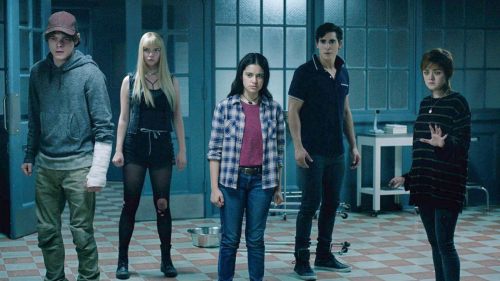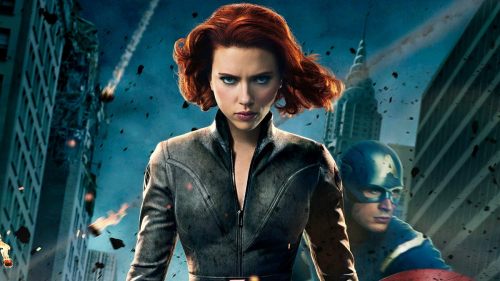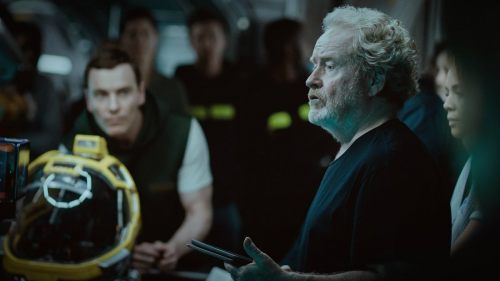How Bob Iger Built A Magic Kingdom Into An Evil Empire
Disney was never a small company - not in our lifetimes, anyway. But fifteen years ago, Disney looked rather different. It had suffered a string of box office disappointments as its Renaissance period dribbled to an end; it had cut thousands of jobs; and Roy E. Disney (son of co-founder Roy O. Disney) accused the company of becoming “rapacious, soul-less, and always looking for the quick buck” in a fiery letter of resignation from his vice-chair position.
The target of Disney’s ire was then-CEO Michael Eisner, whose management style reportedly irritated many at the company. He would soon be replaced by Bob Iger - whose own reign, now ending a decade and a half later, merits analysis. Iger’s time as chief executive has seen Disney grow to Brobdingnagian proportions, swallowing up entertainment titan after entertainment titan and establishing a functional monopoly on the upper end of Hollywood box-office receipts. Some of the company’s most beloved films have emerged in that time, but they've come at the cost of unending anticompetitive and unethical practices.
Iger has accomplished much. He oversaw construction of Shanghai Disney, and shepherded a huge animated back catalogue toward live-action remakes. He expanded the company into South Asia with the purchase of Indian media conglomerate UTV. His Disney ran the Pirates of the Caribbean franchise into the ground. Most recently, he restructured the entire company towards the streaming-heavy future of its franchises. But Iger’s most visible impact came in the form of several incredibly high-profile acquisitions.
The first came a mere three months after his ascension: the 2006 acquisition of Pixar Animation Studios for $7.4 billion. Given that every Pixar feature to date had been distributed by Disney, this came as little surprise, but the acquisition was the first of many to consolidate revenue streams exclusively toward Disney. Iger’s inspiration for the purchase - witnessing a parade in which all the recent Disney characters were Pixar creations - speaks to Disney’s animation rut at the time; the easiest way to bolster that department was to simply acquire the best in the business. Creatively speaking, post-2006 Pixar has become more prolific and more commercially focused, often releasing multiple films a year, usually including at least one high-profile sequel or spinoff. Though Disney has a separate animation studio, the two are conflated all the time. The same company reaps the income, after all.
Iger followed up the Pixar purchase with that of Marvel Entertainment in August 2009. That deal came at a cost of $4.24 billion to Disney, and at the time - with the nascent Marvel Cinematic Universe consisting of two films - it must have seemed colossally expensive. This, more than any other Iger-led acquisition to date, has paid off in spades, with nine billion-dollar movies (two of which are two-billion-dollar movies) among a slate that includes literally dozens of titles since the buyout - plus income from comics and other Marvel activities. Disney’s Marvel strategy has made a huge and likely permanent impact on how cinema is made, distributed, and consumed. More on that downpage.
As if that wasn’t enough, Iger presided over the acquisition of the biggest brand in movies - Star Wars - in October 2012. Purchasing Lucasfilm Ltd and all its properties for a hair over $4 billion, Disney scored another terrific bargain that, to the untrained eye, might have seemed risky. A few billion-dollar movies later, not to mention titanic quantities of merchandising and soon to be multiple resort attractions, the Lucasfilm purchase is another feather in Iger’s cap where shareholders are concerned. Even if the last couple films disappointed at the box office, the Star Wars brand is incredibly powerful, and Disney is looking to the long term with it. It can afford to.
Of course, none of those purchases - not even Marvel - held a candle to Iger’s landscape-altering acquisition of 21st Century Fox, completed last year after many months of negotiation. At a value of $71.3 billion, the acquisition dwarfed even Disney's purchase of ABC and most of ESPN in the ‘90s, and ranks third among entertainment-industry acquisitions behind the 2000 AOL and 2016 AT&T purchases of Time Warner. With Fox’s stable of TV and film programming added to Disney’s own, Iger’s company now holds unprecedented control over much of all screen entertainment ever produced. 17 of the top 20 domestic grossers are Disney films now. Thousands of people lost their jobs in the acquisition, and Fox’s entire back catalogue (minus The Rocky Horror Picture Show) now joins its Disney equivalent in being inaccessible to repertory cinemas in the infamous Disney vault. Celebrate the X-Men returning to the MCU if you want; the merger is a bad thing.
Finally, and perhaps most importantly moving forward, Iger’s Disney acquired BAMTech, a company specialising in video streaming technology, with a view towards creating its own streaming network. The potential ramifications of this make Disney’s $500 million acquisition of YouTube’s Maker Studios seem like a tiny hobby project. Disney+ launched last year, and has been adopted by millions of individuals and families around the world. The company is pouring truckloads of money into creating exclusive content for the service, and we can expect streaming to factor more and more into Disney’s strategy moving forward. It's already being touted as necessary to following upcoming Marvel Cinematic Universe films. I'm tired.
Disney isn’t the only company to manoeuvre itself into this sort of creator-distributor position, of course. During the same period, many other companies - Apple, Google, Amazon, and Netflix chief among them - have come to the same place from the other direction, first running massive content-delivery platforms then beginning production of their own material. In an extremely-online world, these companies will soon be the new Big Five studios, displacing all but Disney from the more traditional studio lineup (with the possible exception of Warner Brothers, if HBO Max takes off).
It’s also important to remember that there are still, even after the thousands of layoffs caused by various acquisitions over the years, plenty of great artists working at Disney to tell powerful stories and create great movies. I don’t wish to besmirch their work or reputations at all, and it’s important to say that, because on a corporate scale Disney has been an overwhelmingly negative force on the rest of the industry.
Whatever Disney shareholders might say - annual operating income has tripled under Iger's watch - the company’s activities this past decade have been actively bad for cinema. Between Disney/Fox, AT&T/TimeWarner, and the DOJ’s recent termination of the Paramount Consent Decrees, media is being controlled by fewer and fewer, bigger and bigger companies. Fewer organisations in charge of media means less variety in entertainment, and given that many of these companies own news outlets too, it’s also literally bad for democracy. In terms of cinema, small-scale and even mid-range movies are being pushed to the margins theatrically, due to a combination of Disney forcing theatre owners into rigid exclusivity arrangements and the simple fact that when Disney releases three Marvels, a Star Wars, and a couple kids’ movies every year, an average moviegoer seeing a few movies a year is only going to see those Disney films.
It’s easy to look at the big numbers atop box office charts and declare the industry healthy. But look beyond the top ten films of any year, and you’ll find that box office drops off much more steeply than it used to. That’s because Disney, among others, has consolidated its attention around a handful of too-big-to-fail tentpoles annually. In doing so, it’s also created a generation of rabid fans cheerleading for a corporate giant that does not care about them, simply because they get to watch their favourite superheroes go “pow pow” three times a year. Disney has become corporate greed incarnate, swallowing up the competition only to flog it for every cent it’s worth, and it’s done so with the braying adoration of moviegoers worldwide. The movies aren’t (all) bad. The strategy is.
All eyes now turn to incoming CEO Bob Chapek, whose sudden ascension to CEO has spooked investors and puzzled onlookers, despite 27 years with the company managing a wide variety of divisions. Iger will stay on with the company until the end of 2021, focusing mostly on the creative content side of Disney, but it’s Chapek’s ship to captain, now. Will he continue Disney’s Pac-Man-like gobbling of businesses, leading to the future depicted in Cloud Atlas, where movies are simply referred to as “Disneys”? No one really knows. But it hardly matters. Disney's position now more or less puts us there anyway.



